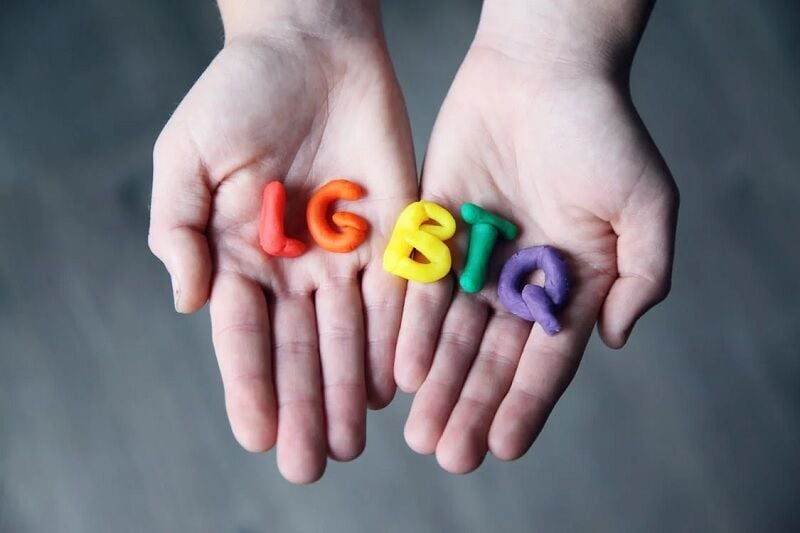Brands accused of rainbow washing during Pride Month

Throughout June, rainbow flags adorn many city streets globally in celebration of Pride Month, symbolising the ongoing struggle for civil rights and the pursuit of equality for LGBTQIA+ individuals.
Brands and companies often show their support by incorporating rainbows into their logos or changing their profile pictures to feature rainbow graphics during this time. However, when June ends, these displays frequently disappear, prompting questions about the sincerity of corporate support for LGBTQIA+ rights.
This phenomenon, referred to as rainbow washing, is seen by some as a mere marketing tactic. The Director of Diversity in Thailand, a non-profit advocacy group, Vitaya Saeng-Aroon, argues that many brands use Pride Month to boost sales rather than to genuinely support the LGBTQIA+ community.
Brands use Pride Month as a way to attract more sales by capitalising on the calls to support and accept the LGBTQIA+ community as mentioned by Saeng-Aroon, who is also the founder of the Bangkok Gay Men’s Chorus. He added that while companies may launch merchandise adorned with the rainbow flag or publicly declare their support, the actual workplace environment and policies often lack real backing for the community.
An LGBTQIA+ activist and co-founder of the Bangkok Pride parade, Chumaporn Taengkliang, agreed, noting that rainbow washing is a global phenomenon driven by the significant public attention the LGBTQIA+ movement receives. This attention makes various brands eager to link the movement to their marketing campaigns.
Also as said by Taengkliang. Some companies focus only on selling their products and neglect the fight for LGBTQIA+ rights that we have been fighting for.
Diversity, equity, inclusion
To genuinely support gender equality, organisations should implement policies that reflect diversity, equity, and inclusion (DEI). Saeng-Aroon highlighted that while many multinational companies have DEI policies, the implementation varies by country. In Thailand, some companies have begun adopting DEI principles, but full implementation remains lacking.
“Some executives may say, ‘We allow our employees to dress according to their sexual orientation. We do not exclude LGBT people.'”
However, he stressed that such superficial measures do not equate to the proper application of DEI principles. Saeng-Aroon emphasised the need for companies to reassess their internal processes, starting with human resources, to ensure gender equality in recruitment and a supportive culture for all employees.
He argued that companies must guarantee that gender is not a factor in performance evaluations and that LGBTQIA+ employees receive the same benefits and protections as their heterosexual counterparts.
He said companies must ensure all employees have the right to grow in their careers and that gender is not a determining factor in performance evaluation.
Saeng-Aroon also pointed out that companies should protect employees’ rights outside the workplace by communicating their gender equality policies to stakeholders. Providing equal benefits to LGBTQIA+ employees can foster a positive corporate culture and improve employee retention.
Private sector
The private sector is gradually creating more inclusive work environments, starting with large listed companies and eventually non-listed companies and government agencies. However, Saeng-Aroon acknowledged that some agencies, like the Defence Ministry, might be slow to adapt.
The government’s push for the same-sex marriage bill is seen as a step toward enhancing the country’s economy through increased spending on wedding-related services and tourism but Saeng-Aroon believes it is just the beginning of a longer journey to address broader social issues.
Saeng-Aroon urged companies to be clear and consistent in their plans to support LGBTQIA+ individuals year-round, not only during Pride Month. He suggested that these plans should include specific projects, action plans, and activities involving relevant stakeholders.
Chumaporn added that the Bangkok Pride event requires companies wishing to participate to have internal policies supporting gender diversity and to ensure no workplace discrimination. Companies must also not censor issues important to the community, such as the rights of sex workers.
She said that private companies want to celebrate Pride Month, while civil society needs corporate resources to make our voices louder. This makes us work to find a common ground.
Saeng-Aroon acknowledged that some companies participating in the parade are legitimate supporters of the cause but he believes the community must give more time to those just beginning to embrace workplace diversity.
As discussions about advancing LGBTQIA+ rights and inclusion continue, society will become more aware of each company’s true stance on these issues. Saeng-Aroon concluded by questioning whether companies genuinely support the LGBTQIA+ community or are merely engaging in rainbow washing, reported Bangkok Post.
Latest Thailand News
Follow The Thaiger on Google News:


























